April 21, 2025 | 03:02 GMT +7
April 21, 2025 | 03:02 GMT +7
Hotline: 0913.378.918
April 21, 2025 | 03:02 GMT +7
Hotline: 0913.378.918
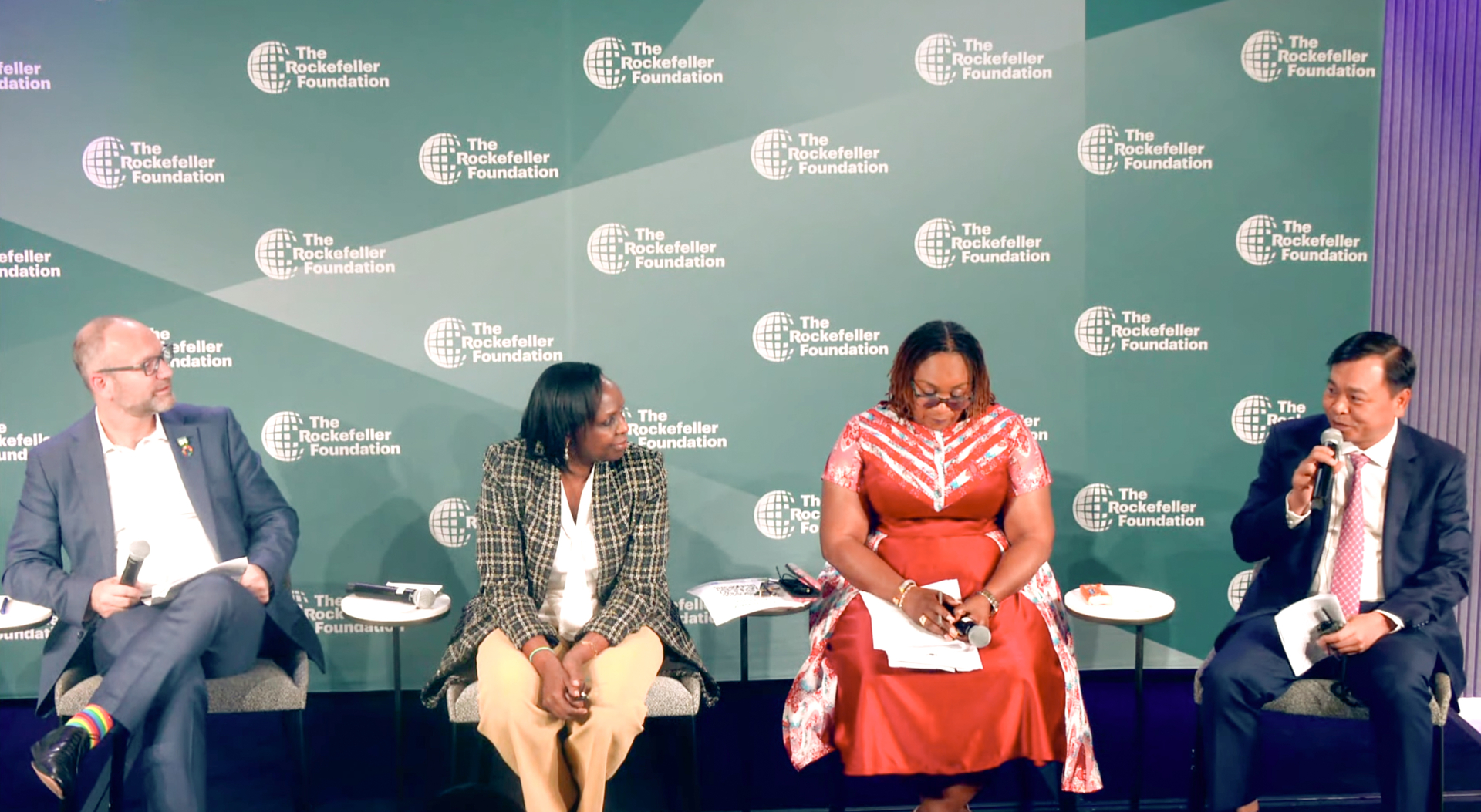
MARD Deputy Minister Nguyen Hoang Hiep shares with delegates the topic of food security and agriculture on Food Day September 20, 2023 within the framework of the the 78th Session of the United Nations General Assembly (UNGA 78).
Food systems transformation is critical to delivering the shared global agenda for Sustainable Development Goals (SDGs). In 2021, between 700 and 800 million people were affected by hunger, with projections showing that nearly 670 million people will still face hunger by 2030. Nearly 3.1 billion people cannot afford food and a healthy diet in 2020.
Not only that, modern agri-food systems are contributing to increasing inequality, becoming a major cause of biodiversity loss and responsible for one-third of global greenhouse gas emissions. Therefore, countries need to approach food systems, address this challenging problem and accelerate the transition to sustainable agri-food systems.
Food Day is a key moment between the UN Food Systems Summit Stocktake and UNFCCC COP28. It rallies leaders to elevate food systems transformation in their climate and development action plans and reinforce the importance of localized solutions. By connecting a diverse group of senior decision-makers, the event will help enable the development of context-specific strategies that can close the implementation gap on the ground and in the water.
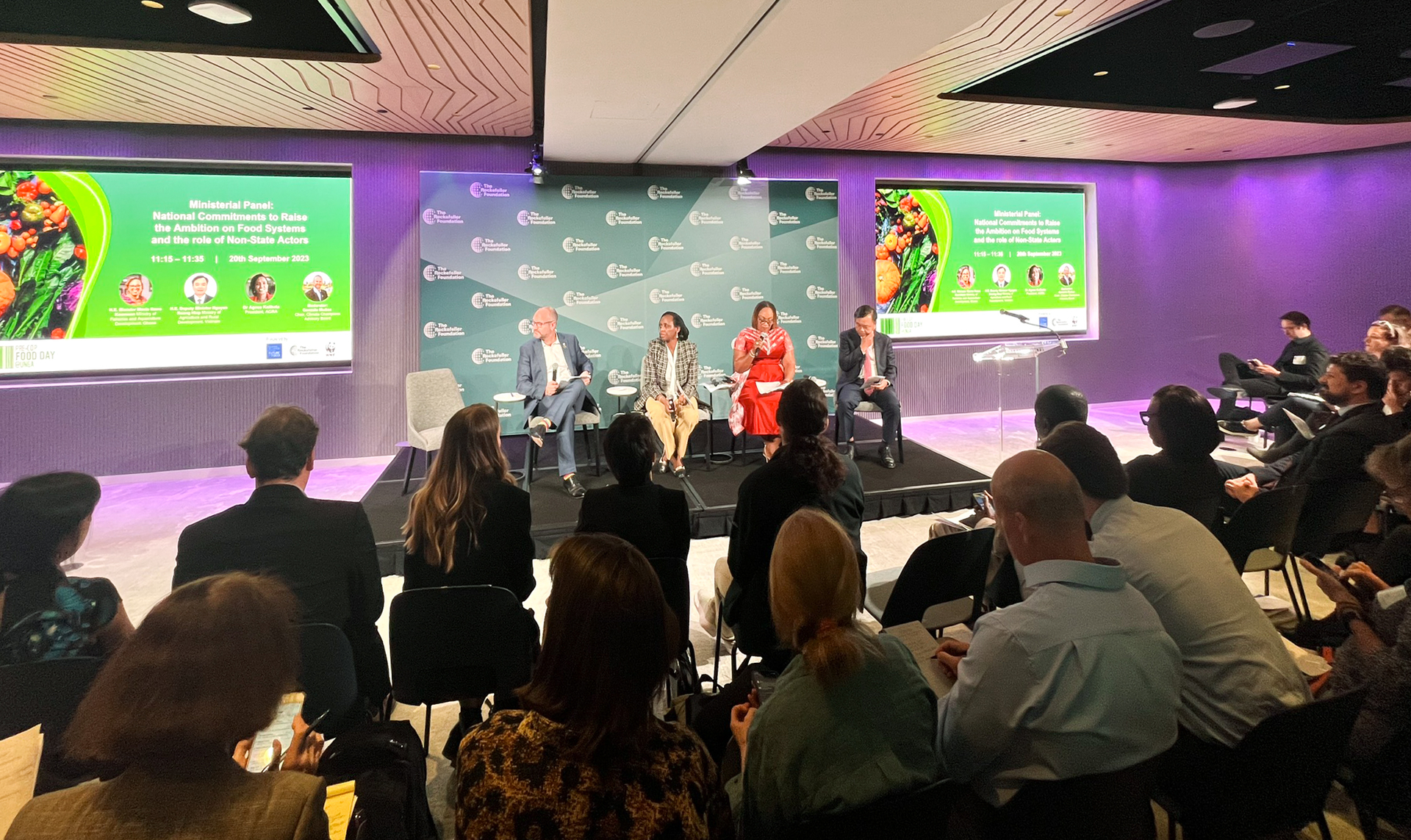
Food Day is an event that connects senior leaders to share and learn from other countries' experiences. Photo: ICD.
The world has arrived at a moment when all countries need to drastically change their thinking, recognizing agriculture and food systems as solutions to climate change. At the same time, countries need to take concrete actions to transform the food system. Glocal political commitment should be people-centered, inter-sectoral, and multi-purposed, aiming toward the mobilization of private sectors to invest in agriculture and the application of science and technology. Investing in agriculture is the most important renewable resource to successfully transform the food system, contributing to achieving Sustainable Development Goals and responding to climate change.
Speaking at UNGA 78 with the participation of leaders of 193 member countries, UN Secretary-General António Guterres states: “Action is what the world needs. This is a time to come together for real, practical solutions.”
MARD delegation, led by Deputy Minister Nguyen Hoang Hiep, also attends the activities of Food Day. Speaking at the high-level meeting on the global commitment to food security, he shares Vietnam’s experiences and challenges in transforming and developing agriculture and the food system in Vietnam.
“For a long time, Vietnam’s agricultural success story has relied on the intensification of smallholder farming and government investment in agricultural research, extension systems, and irrigation. Although intensive agriculture can contribute to ensuring national food security and exports, it negatively impacts the environment. It degrades land, water, forests, and agricultural biodiversity,” Deputy Minister Nguyen Hoang Hiep shares at Food Day.
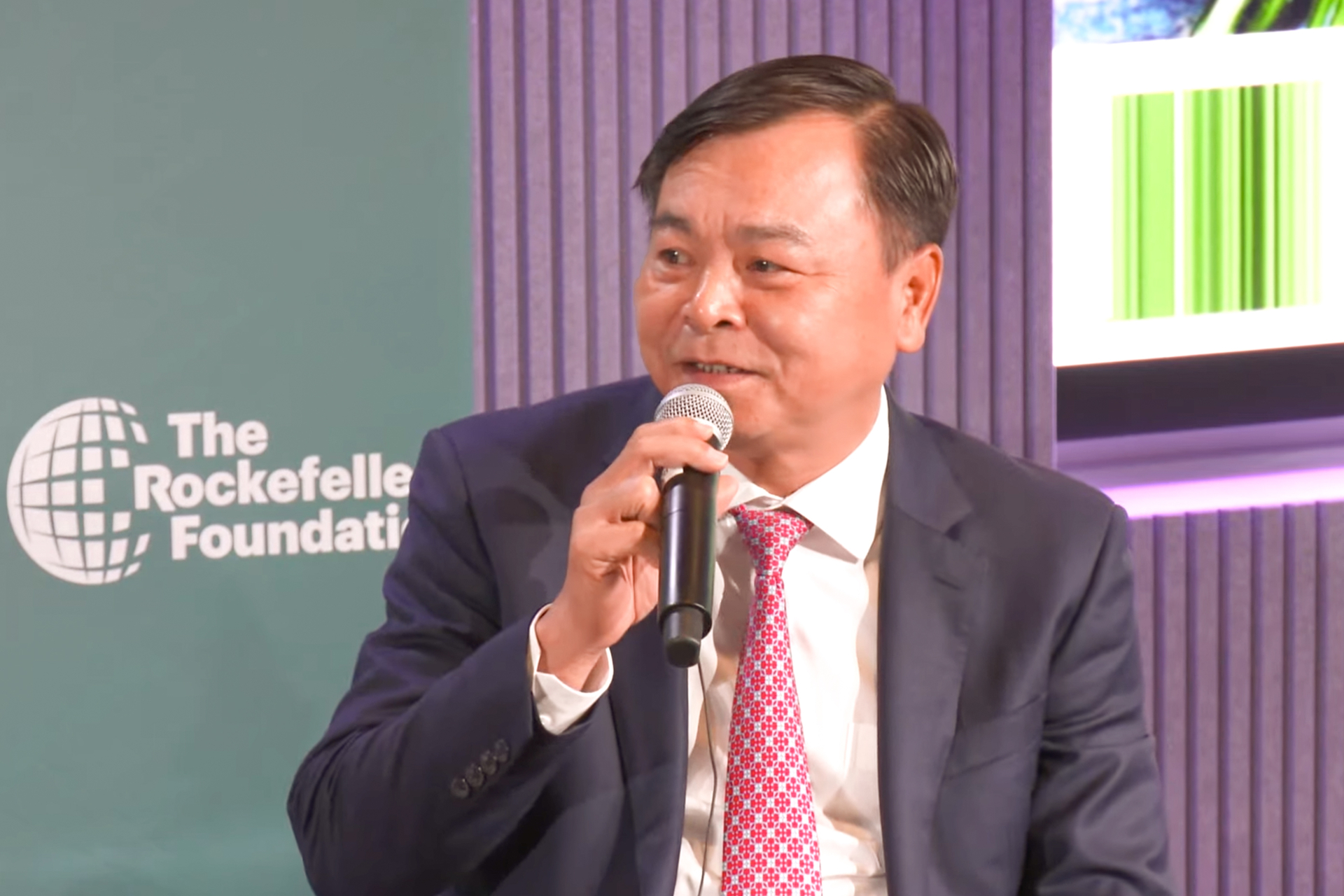
MARD Deputy Minister Nguyen Hoang Hiep shares his experience in transforming Vietnam’s food system and agriculture.
Currently, Vietnam’s agricultural industry aims to convert from quantity to quality production; transform agricultural production thinking into agricultural economics with a multi-goal, multi-sector perspective to increase adaptability to climate change; increase capability to meet market standards and diverse market needs, both internationally and domestically. At the same time, we are in the process of reorganizing production and capacity, linking cooperatives and associations to the value chain.
The Government of Vietnam has issued a National Action Plan towards a transparent, responsible and sustainable food system by 2030. This plan aims to overcome the shortcomings and limitations of the agricultural and food systems. This will strengthen integration and minimize the trade-off between economic development and the environment and public health. Currently, MARD is completing the mechanism to establish Partners and technical teams/groups to implement this plan.
In his speech, the Deputy Minister also affirms: “Transforming the food processing system plays a critical role in the new context to accelerate progress in implementing the Sustainable Development Goals so that no one is left behind.”
Food Day features high-level sessions on the following topics: The role of UN Agencies in helping to #RaiseTheAmbition on food system transformation; Redirecting capital and decolonizing finance for real food systems transformation; Preview of Action Labs; Upholding inclusive and place-based innovation and investment; Road to COP28 and beyond - Paving the way for greater government leadership; and Equity and Inclusion are central to #RaiseTheAmbition.
Translated by Quynh Chi

(VAN) The Central Veterinary Diagnosis Center (Department of Livestock Production and Animal Health) has proposed tightening the mechanisms for monitoring and ensuring transparency in the testing information provided by private laboratories.
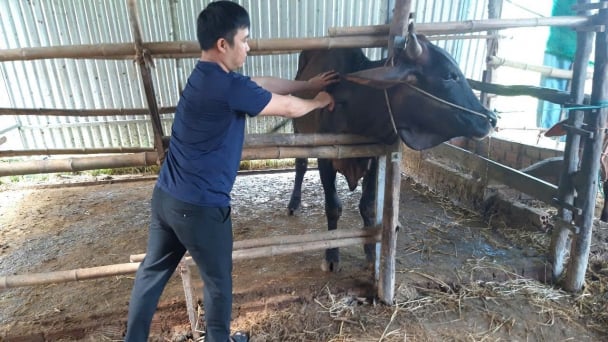
(VAN) Not only does vaccination protect livestock against dangerous diseases, but it also brings sustainable economic benefits to farmers.
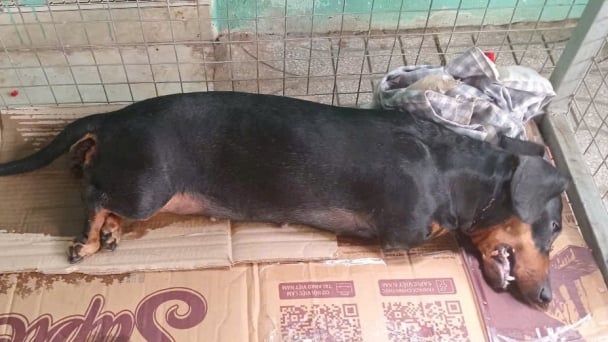
(VAN) Since the beginning of the year, Dong Nai has recorded 8 rabies outbreaks, resulting in 2 deaths due to unvaccinated dogs being let loose on the streets.
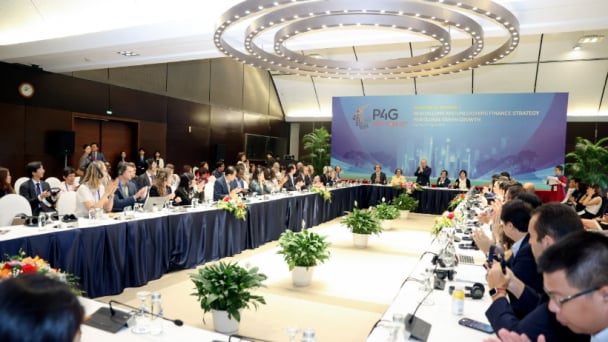
(VAN) Green finance needs to undergo global reform to ensure capital flows to the right places, at the right time, and supports a just green transition.
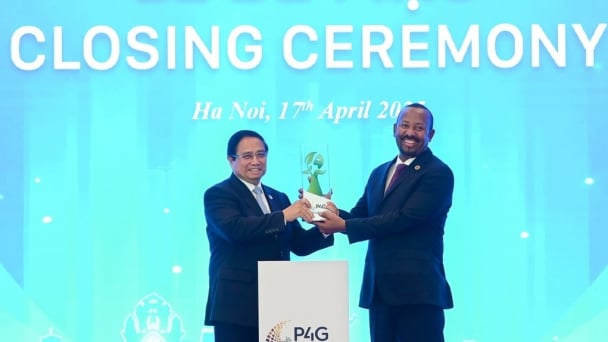
(VAN) On the afternoon of April 17, Prime Minister Pham Minh Chinh chaired the closing ceremony of the P4G Vietnam Summit 2025, with the theme 'Sustainable and People-Centered Green Transformation.'
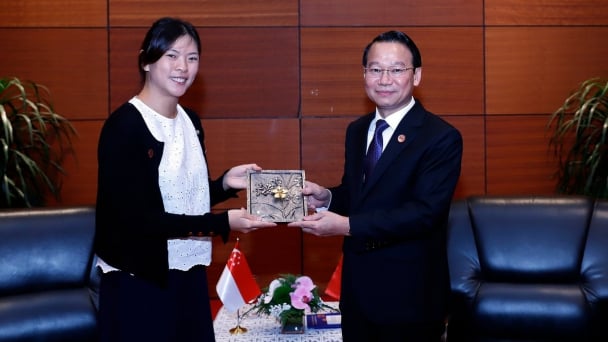
(VAN) Vietnam and Singapore are poised to sign the Paris Agreement and collaborate on implementing large-scale renewable energy projects that are mutually beneficial.
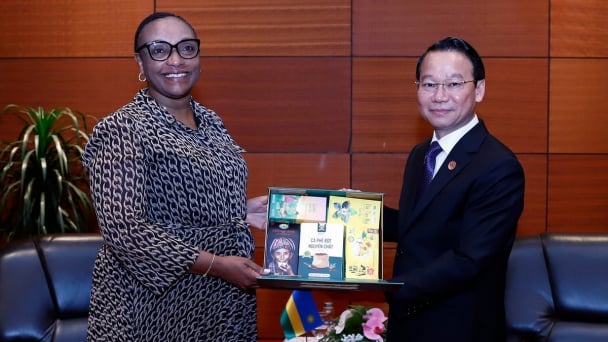
(VAN) Vietnam and Rwanda agreed to promote agricultural and environmental cooperation towards green growth and sustainable development in the new period.